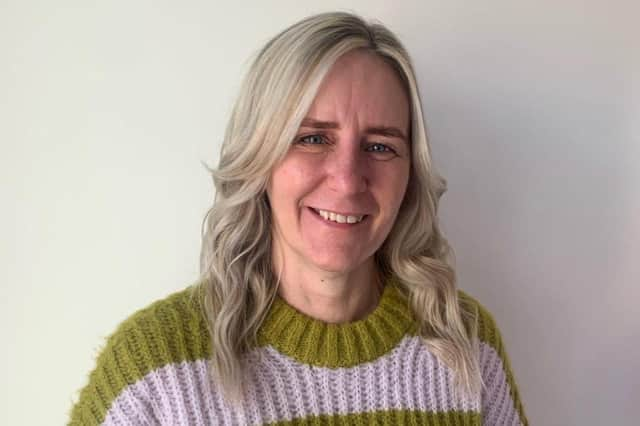Supporting people with autism and ADHD journey is Tracy's life’s work – and her own reality


Driven by a passion for helping others, Tracy empowers people to overcome the day-to-day challenges of their condition in the workplace as well as supporting several members of her own family.It’s also a very personal mission for the mum and grandmother, whose own daughter has severe dyslexia, while another is suspected of having the condition. Her son is awaiting a diagnosis for autism and two of her 10 grandchildren have respective dyslexia and dyspraxia diagnoses! While, most surprising of all was the recent revelatory diagnosis of ADHD for Tracy’s stepfather – while studying for a Maths degree at the age of 78! It was picked up on by a university lecturer who quickly encouraged him to get an assessment.After working towards a career as a midwife, Tracy later decided instead to study for a Social Work degree, but it was a placement working with adults with learning difficulties at the age of 45 that prompted a return to university to obtain a post-grad in Autism In Adults. Since then she has dedicated her life to working in the field and today takes pride in her coaching work with Perfect Support.And she has a healthy file of testimonials to prove it, including big-hitters in the world of corporate finance such as Lloyds Banking Group, HSBC, Bank of Scotland and American Express. Virgin, Sky, ITV and British Aerospace are among others.She said: “I worked full time while studying part-time. I discovered I liked working with adults who were displaying challenging behaviour, so the non-verbal and quite aggressive people. “But eventually it got to the point in the job where I'd received that many injuries – I’d had concussion and things like that - I just think I’d gotten too old for the job. You've got to be able to take all the aggression, which comes from their frustration because obviously they're non-verbal, or they are verbal but can't communicate their feelings.”Perfect Support offers workplace wellbeing coaching strategies, and a large focus of Tracy’s work is in helping managers to identify and facilitate neurodiverse needs among their team.She explains: “Participants will develop a better understanding of the challenges that can be faced by neurodivergent individuals in the workplace, by appreciating more about each condition and learning about the experiences of someone with them.“We investigate the benefits of a neurodiverse workforce, helping everyone to acknowledge and realise the positive impact that diversity has on productivity, creativity, and achievement of workplace targets. “Some people can struggle with managing their time, procrastination, feeling overwhelmed through autism, especially, communicating with other team managers and line managers. So we look at different solutions, that might help them.“Sometimes managers just don't understand. A lot of people with autism, for example, can't handle change. So we’ll discuss with them and their line manager about, how they think it would be best to be notified of that change.“So it's about seeing what people’s individual struggles are. Managers often say they genuinely had no idea.”A recent report by Lancaster University and commissioned by Perfect Support, states: “Ensuring neurodiversity among a workforce can bring significant benefits for organisations. Dyslexic individuals, for example, are inherently creative, think ‘outside the box’ and are great at seeing patterns in ‘big data’, all valuable skills for any workplace. For this reason, people with dyslexia are increasingly being sought by employers. Companies are having recruitment drives aimed specifically at people with dyslexia.” But Tracy still believes there is some way to go in the battle to beat the workplace stigma.She said: “It's getting there in terms of more perception and help in the workplace. But I do think we have still got quite a long way to go. Some companies and some individual line managers are more understanding than others. “I do have some clients who won't mention the fact they have autism in an interview because then people start talking to them, like, they're less intelligent. There's still that stigma.”She added: “I think it's different for every industry but I would say open communication is key. And if there's something that that can be put in place, maybe introduce it to the whole team so it makes that person seem less Individualised and highlighted.“So, for example, for one of my clients, we said let's have focused time between 3 and 4.30pm. Turn off your notifications and everything and you know that you're not going to get any interruptions.“His line manager then sent out an email to the entire team saying, we've decided that we're going to try a focus time between 3 and 4.30pm. If you don't want to join in with it, that's absolutely fine but in which case, please respect other people and try not to disturb them between this time unless it's urgent. So that's the ideal scenario - that that they look at something and think, how could I change it for the whole team to make it less obvious that one person is working in a different way.”Perfect Support’s DSE-trained assessors, trainers and coaches have worked within the industry for over 10 years, delivering one to one or small group coaching sessions, helping thousands of people with a variety of health conditions and disabilities to succeed in both education and employment.Tracy, now 54, reflects on her own story: “Some of my sisters have worked in care settings of some form or another and I used to joke that I couldn't imagine anything worse. But, looking back, I think it was the thought of doing it rather than actually doing it and I soon fell in love with the job. “It's so rewarding when people I’ve been coaching turn around at the end and say ‘you've completely changed my life. I don’t feel overwhelmed and am really enjoying working again now.’ ” Visit: https://psupport.co.uk/